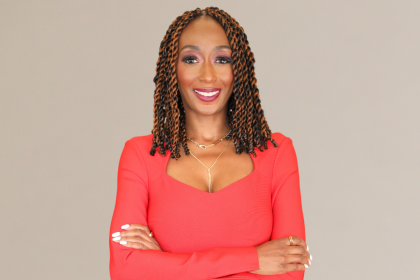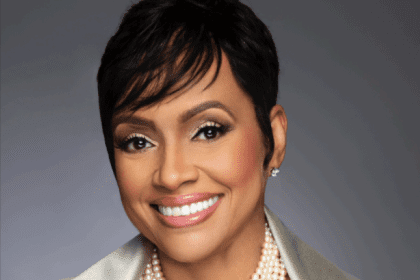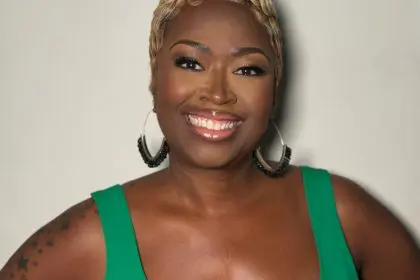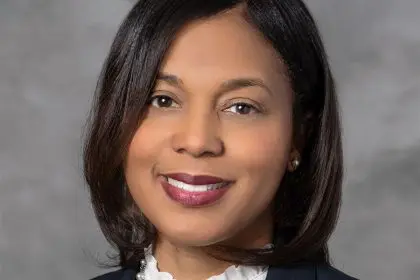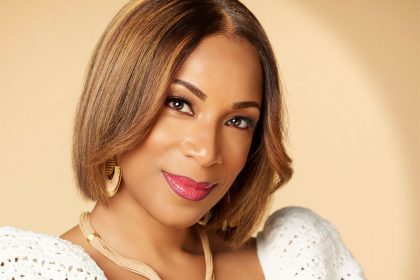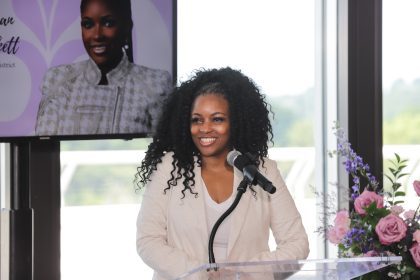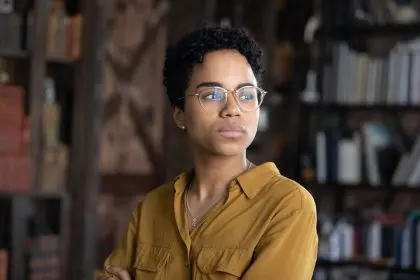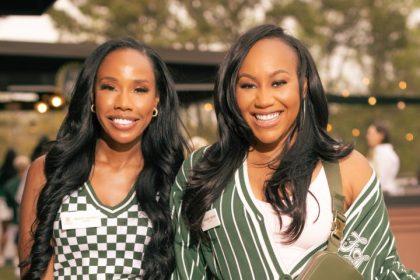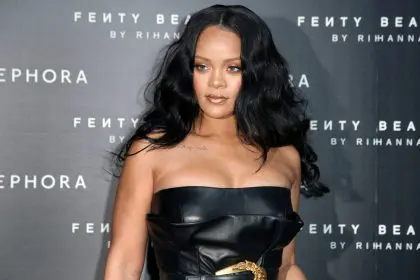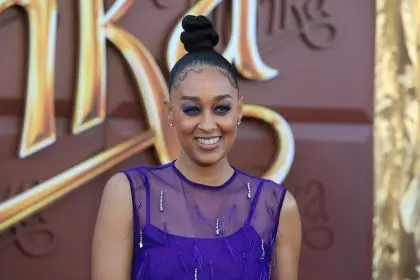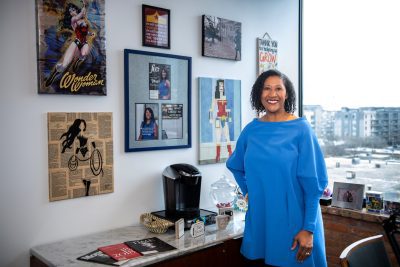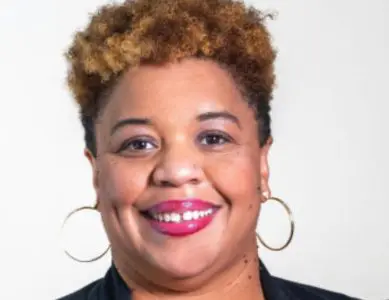
From organizing at the Democratic National Committee during one of the most consequential elections in history to co-founding the Women’s Democracy Lab, Mũthoni Wambu Kraal has dedicated her career to transforming political power for women of color. The Howard University graduate and Delta Sigma Theta member brings nearly two decades of experience in political organizing, having spent almost a decade at EMILY’s List before her pivotal role securing victories in the 2020 White House race.
As co-founder and executive director of the Women’s Democracy Lab, Kraal leads innovative efforts to support elected women of color at state and local levels, while her strategic consulting firm Dunia Political Impact focuses on criminal justice reform and immigration issues. A board member of ActBlue, Rock the Vote, and D4 Women in Action, she continues to shape the political landscape through values-driven leadership and community building.
What do you consider your superpower throughout your career?
It was a later in life discovery. At WDL, I am blessed to have an amazing team, and one of them is my Chief Financial Operating Officer, Tasha Speed, and she is certified in doing the Gallup CliftonStrengths work. We do it for all of us, and we do it even for our elected women, because a lot of our work is about leadership development and doing a lot of self assessment.
I found out that my number one strength was belief. It means that you are extremely values driven. Sometimes it can be a little extreme. I do tend to give the Heisman to things that I think are grifty, and if I don’t really see a person or a thing, or an organization coming into space with a lot of authenticity, I’m not interested in it. I am deeply interested in folks who are really looking to push forward in the most positive ways possible, and I am most of the time, 200% of the time, driven by that values centered thinking.
What drives your commitment to building political power for women of color?
I think that this may be the result of some kids getting to go to the store and purchase their Halloween costume like Minnie Mouse, or Superman, or Superwoman, and I was going as Harriet Tubman.
I had a very interesting, strong African father, who was here for having these strong wives, because even once he became a widow and remarried, even my stepmother was a woman who was at the senior levels of Nestle Africa. So these are women who have deeply modeled for me women’s power, women’s empowerment and themselves worked really hard, not just at the work that they did, but at the people who were around them, and advancing more women into the various areas where they had influence.
What it did was it never allowed me to fall for that false dichotomy, that being feminist or advancing women’s empowerment, was being done at the expense of men, when, in fact, what we are trying to do is create a whole pie.
How does raising a son influence your approach to this work?
It has just reaffirmed for me a lot of the false dichotomies that sit inside of baked in gendered norms that are negative and bad for us as a society. When you get an opportunity to really weigh in and shape a person with values of equity, with values of seeing themselves no more defined by their gender than actual real things that matter inside of their character and looking for strong people to be around them.
Many of the fears, whether it is replacement, fear around gender, around race, all of that is built on these false narratives about what it means to be man, what it means to be a woman, and what it means to have power, and how you should be using that power. I think, having had the gift of really growing up in a space where none of that was particularly important, and most folks were just operating off of who does what best, and let’s do that.
What was your experience leading organizing at the DNC during the 2020 election?
First and foremost, it reinforced for me the importance of your human resources. Coming now from a mixed household and watching a stepmother do a really beautiful job of coming into our lives, my human resources were the first and most valuable resource I had during that cycle.
We had to really get to know one another. I had to earn their trust. I had to really learn how to create the conditions where I was opening up pathways for them to do what they do best. I tried to set realistic expectations around the political work, because there is a lot of resistance, even when you have the experts of their communities coming with ideas, there can be a lot of resistance around how to execute on those ideas.
We still had a lot of tension and a lot of distrust between those folks who had supported Hillary Clinton and those folks who had supported Bernie Sanders, and there was a lot of repair work to be done. By the time the pandemic hit, because we had done so much organizing work together, we were really bonded, and so we could make it through.
How do you approach rebuilding trust in political work?
I think that sometimes the word cycle is being mistaken for laundry. This is not like a rinse and repeat, there’s like a continuum that we are working inside of, and in a continuum of people, the most powerful thing we can do is to look back, but also be looking forward and learning from looking back. It is very important to have very clear, honest reflections and to allow for people to be very transparent, to look at the numbers, look at the data and listen to the people. Match all of those things up and then make the plan.
My concern is that the culture of campaigns has such a culture of packing up, moving on. The information is there, but the instinct to come and build things in your own vision may override the look back, the listen, the build with. We should be co-designing our solutions.
When you are coming into a space that has demonstrated so much brokenness, I don’t understand how you choose a leadership style other than collaborative.
What inspired you to create the Women’s Democracy Lab?
The inspiration came from Sayu Bhojwani, who used to run and started New American Leaders, an organization that recruits and transfers second generation, and maybe more at this point, immigrants to run for office. She came to me along with Anathea Chino, who runs Advanced Native Political Leadership, with this idea around us building an organization that would support indigenous and women of color who are elected, particularly focusing on the state and local level where the resources are the least.
All of us had worked on candidate pipeline work, we had all trained, recruited, supported, and helped recruit history making people, whether it was around women, or people of color, immigrants. It was history makers, barrier breakers, who then get into these institutions, and we’re like good luck, our work here is done. And they look around and they go. “Where the hell did everybody go?”
It just was so instinctual. I was like, absolutely yes, I would love to do this with you all. We will always foundationally start where we think the most marginalization has taken place, because our ultimate goal is not solely just around building community around women of color. But it is about democracy change, and it is about building an inclusive democracy that is going to help the most of us.
What change are you hoping to spark through Dunia Political Impact?
A lot of my work is still sitting around politics, and it is still connecting to wanting to really remove barriers and help impact issues that will help move more of us into doing the most for the most of us. All of my work is focused around criminal justice reform, crime and safety and immigration. That is being framed in a criminalized framework in ways that are incredibly harmful and meant to be.
There was a time where things like criminal justice reform were oddly a little bit more bipartisan, and where it’s now just become a weaponized issue by conservatives, and organizations that used to be quite bipartisan are finding themselves no longer able to just even survive as (c)(3)s, they have to form (c)(4)s, because they have to become political.
How has the shift toward political polarization affected you?
I’ve remained grounded, but it doesn’t mean I’m unaffected by it. I am saddened. So much of this is manufactured. My number one trait is belief. What I am not here for is the grift, and so the success of grift is deeply painful for me.
My determination to fight and my determination to beat the grift is very high. The organizer in me is not shaken at all, she is deeply curious. If you leave people out here uncommunicated to, then you leave them for somebody else to come and pick up and have any old conversation they want to. There is proof of that in literally every single constituency. Every single constituency has shown that there was a point in time where folks were like “You don’t understand me, you don’t understand my life, and that thing you’re doing, or that thing you’re saying, it is not resonating with me.”
What continues to inspire you and fuel your work?
What I have been saying, even inside of our Women’s Democracy Lab community, is really emphasizing the importance of gathering right now. What it feels like in our bodies when we are putting ourselves inside of community and spaces that just bring us joy and the payoff for that spiritually, physically, is real.
It’s like the antidote to anxiety. It’s the antidote to spiraling. There’s something really beautiful as well about feeling very reassured by that connectivity, because I honestly think it’s the pathway back. The power of peer to peer is real, it’s a real formula, and it’s a real outcome.
The more that we are, maybe even as operatives, reminding ourselves of the simple truth about the power of gathering and what that looks like in the power of peer to peer conversations in our own lives. Whether it is with communities of people who will deeply need persuasion, which at this point, I think is a pretty large percentage.
Let’s do away with the rugged individualism. It is the thing that is leading to stories about the scores of people who are sitting inside of the loneliness epidemic, and that is so real.
Where can people find you and connect with your work?
I’m on Instagram, I’m on Facebook, and LinkedIn, and the Women’s Democracy Lab, please find us on LinkedIn. We are there as an organization. If you know elected women, we are working with the full diversity of women who need a supportive community, particularly serving at the state and local level of which they are everywhere, up and down ballots. We are talking to women who are serving on school boards, all the way up to statewide elected offices, town clerks, all of it. There’s no office too small for us to be a supportive community for them. So please come yourself if you are one of them, or help spread the word about Women’s Democracy Lab.

